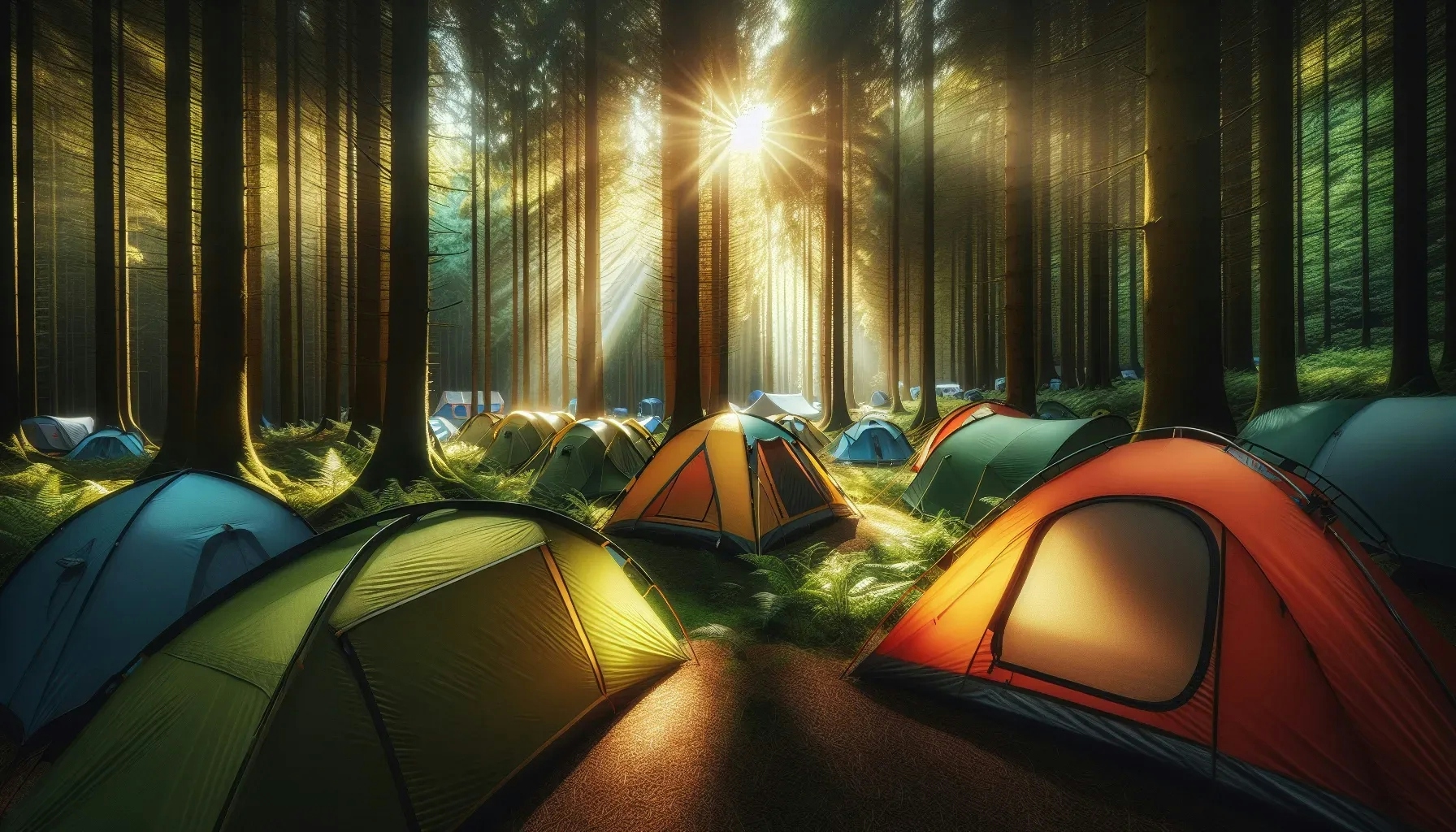How to Choose a Camping Tent
Top Camping Tips

Embarking on a camping adventure requires careful planning and preparation. One of the most crucial decisions you'll make is choosing the right camping tent. This guide will help you navigate the myriad of options available, ensuring you make an informed choice that suits your specific camping needs.
Understanding Different Tent Types
When you start your search for a camping tent, you'll quickly realize there's a vast array of tent types. Each type serves a specific purpose, and understanding these can significantly simplify your decision-making process.
Dome tents, for instance, are popular due to their stability and easy setup. They feature two poles that cross at the top, creating a spacious interior. However, they may not withstand harsh weather conditions as well as other types.
Tunnel tents, on the other hand, offer excellent space-to-weight ratios and are perfect for family camping. They are, however, less stable in high winds unless properly pegged and guyed out.
Geodesic and semi-geodesic tents are the go-to options for extreme weather conditions. They feature multiple intersecting poles for increased stability but are more complex to set up.
Pop-up tents are perfect for festivals or quick weekend trips. They are incredibly easy to set up but lack the durability and weather resistance of more robust tent types.
Size and Capacity Considerations
After understanding tent types, you need to consider size and capacity. It's essential to choose a tent that can comfortably accommodate the number of people camping and their gear.
A two-person tent might seem sufficient for two people. However, it's often more comfortable to choose a three or four-person tent to allow extra space for gear and movement.
For family camping, consider tents with multiple rooms or dividers. These provide privacy and allow for a more organized living space. Remember, a camping trip should be comfortable and enjoyable, not cramped and stressful.
Seasonality and Weather Resistance
The time of year and expected weather conditions play a significant role in choosing a camping tent. Tents are categorized into three main types based on seasonality: 2-season, 3-season, and 4-season tents.
Two-season tents are lightweight and designed for summer camping. They offer excellent ventilation but little protection against harsh weather.
Three-season tents are the most common. They can withstand spring, summer, and fall conditions, providing a balance between ventilation, warmth, and weather resistance.
Four-season tents are designed for year-round use, including winter camping. They are robust, offering excellent protection against heavy snow, strong winds, and cold temperatures.
Material and Durability
The material of a tent determines its durability, weight, and weather resistance. Most tents use nylon or polyester. Nylon is lightweight and strong, but UV rays can degrade it over time. Polyester is more resistant to UV damage and is often used for flysheets.
The floor material should be durable and waterproof. Look for tents with a 'bathtub' floor, which curves up the sides of the tent to prevent water ingress.
The quality of the poles is also crucial. Aluminum poles are lighter and more durable than fiberglass, but they are also more expensive.
Ease of Setup and Portability
The ease of setting up your tent can make a significant difference in your camping experience. Nobody wants to spend hours struggling with tent poles and instructions, especially after a long day of outdoor activities.
Tents with fewer poles and simple designs are generally easier to set up. Color-coded poles and pole clips can also speed up the process.
Portability is another important factor. If you're backpacking, you'll want a lightweight tent that packs down small. If you're car camping, weight and packed size are less of an issue, but you still don't want a tent that takes up all your trunk space.
Additional Features and Accessories
Additional features can enhance your camping experience. Look for tents with plenty of mesh panels for ventilation, especially if you're camping in warm weather.
Storage pockets and gear lofts are handy for keeping your tent tidy and organized. A vestibule provides extra storage space for gear and can serve as a sheltered cooking area.
Consider the tent's door design. Multiple doors can prevent you from climbing over each other for midnight bathroom breaks. Also, consider the noise and ease of use of the zippers.
Wrapping Up Your Tent Selection Journey
Choosing the right camping tent is a crucial step in planning a successful camping trip. By considering the type of tent, size, seasonality, material, ease of setup, and additional features, you can find a tent that perfectly suits your needs. Remember, the perfect tent for you is one that combines comfort, durability, and functionality to enhance your outdoor experience.